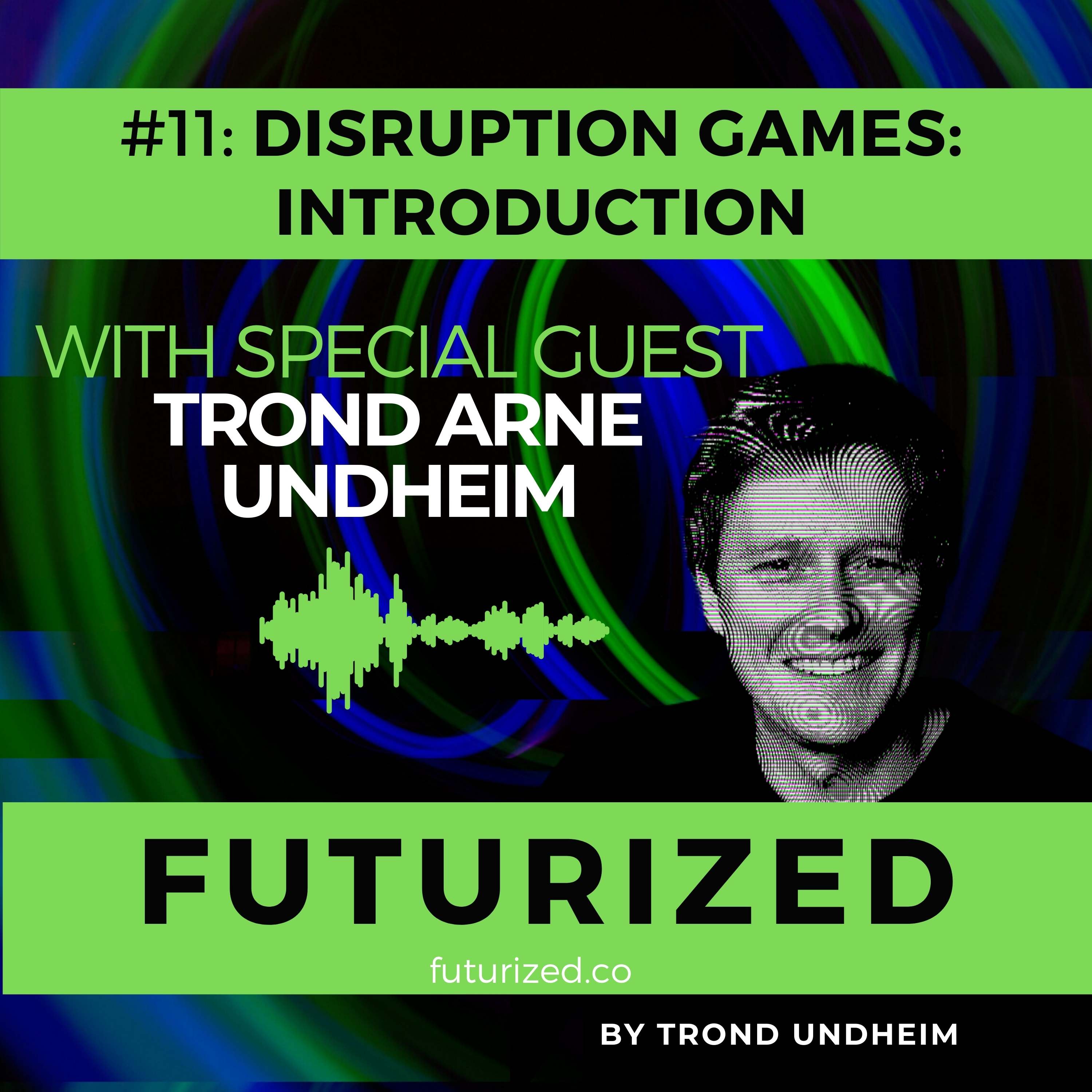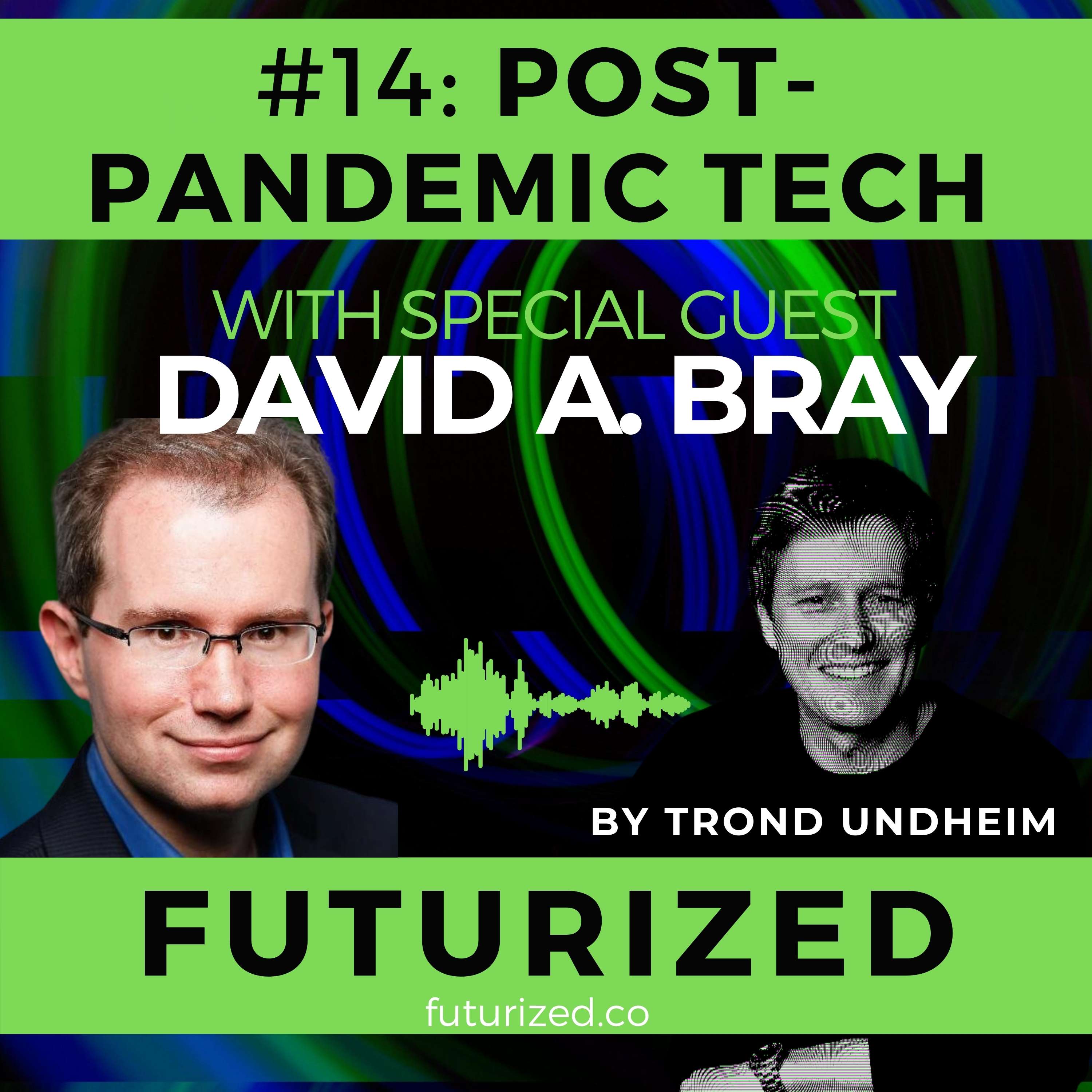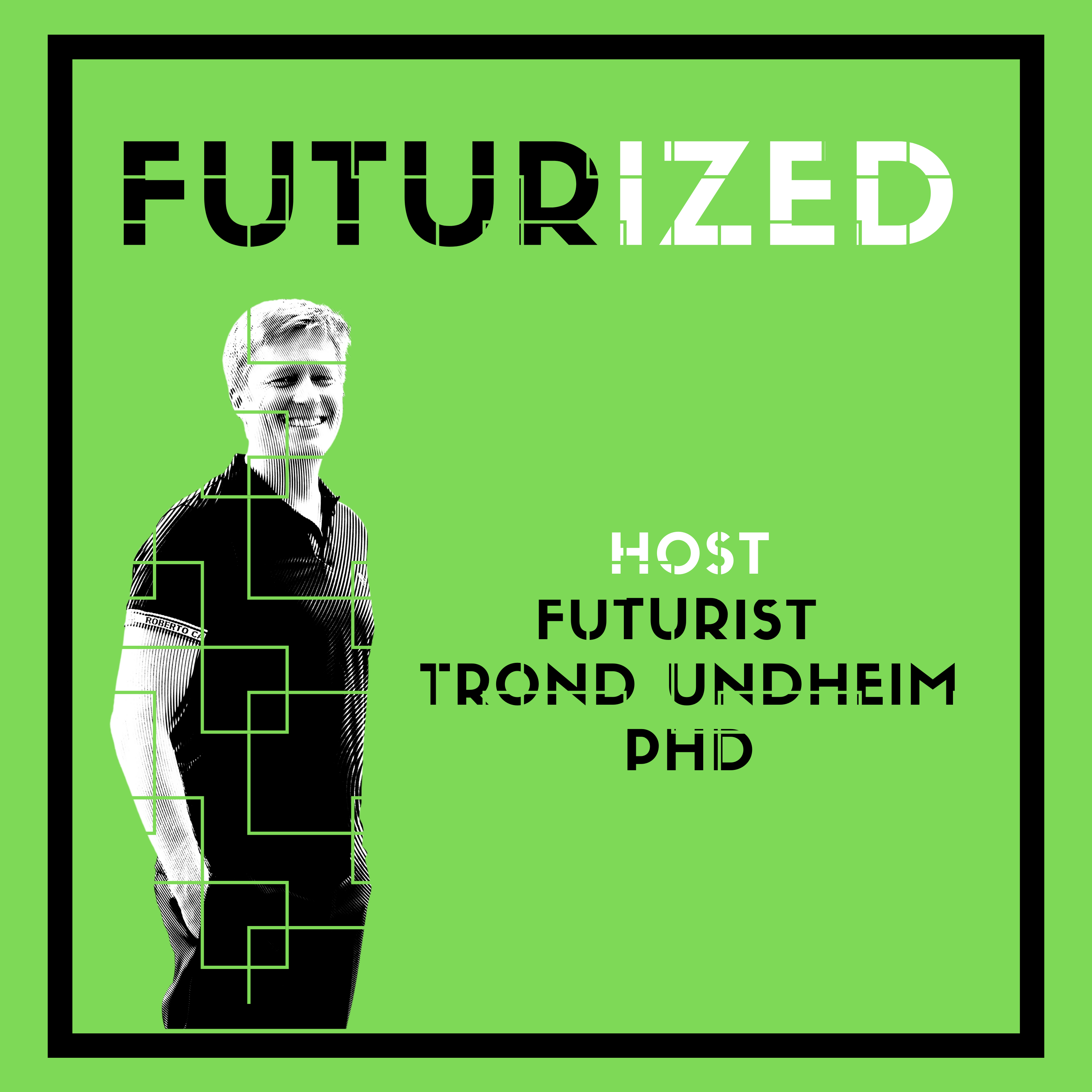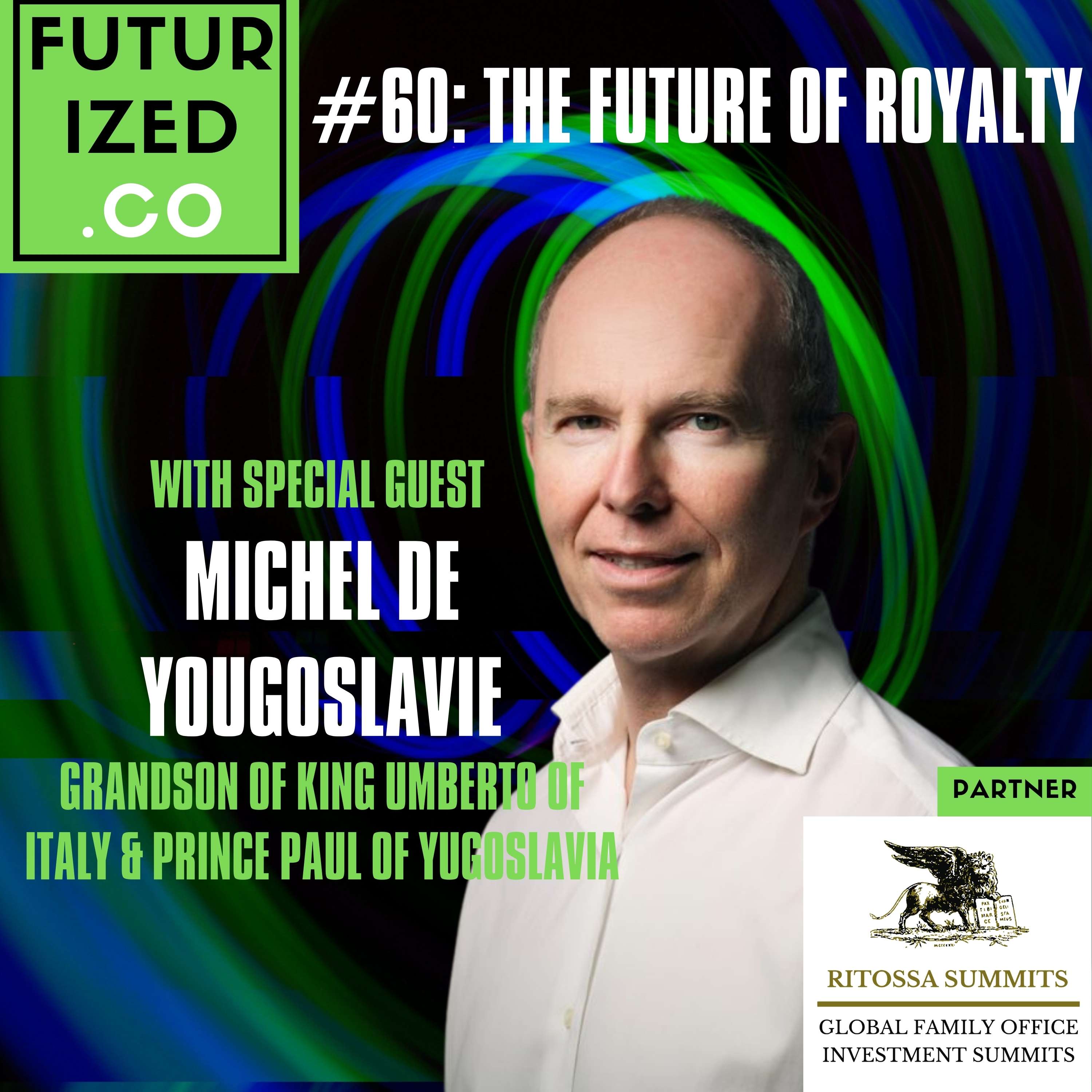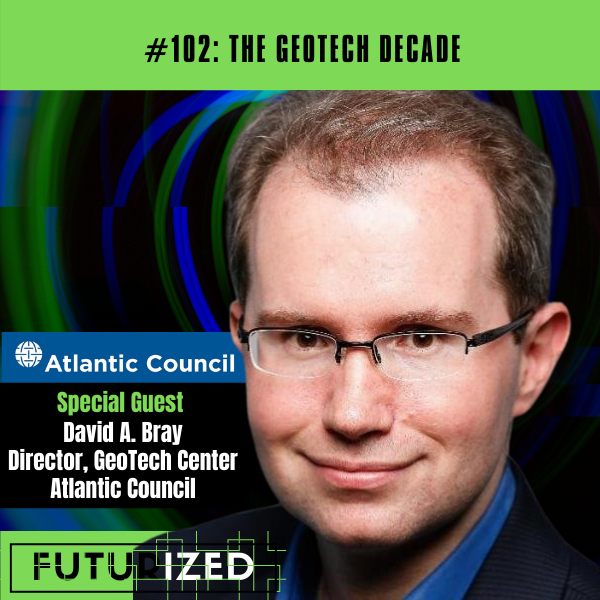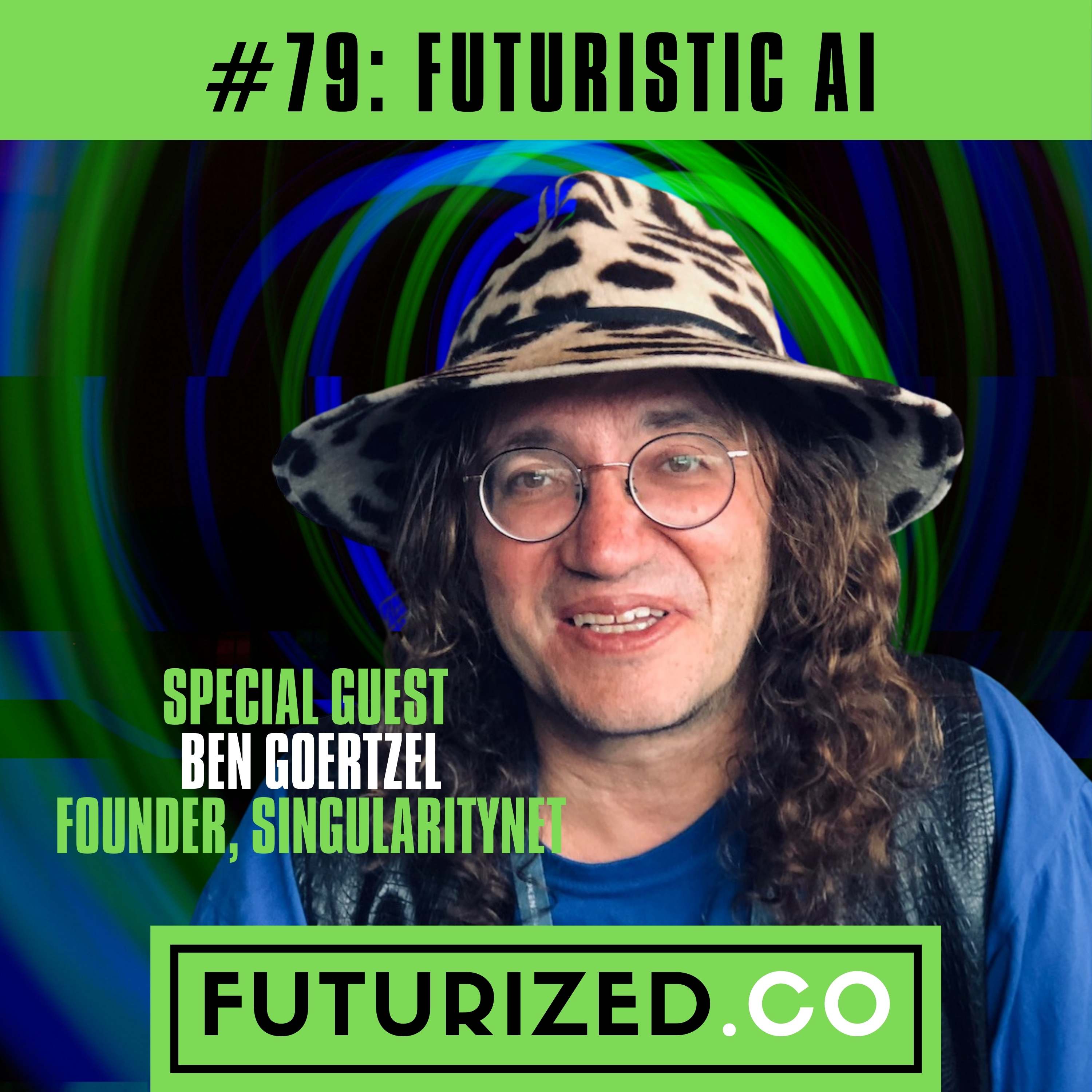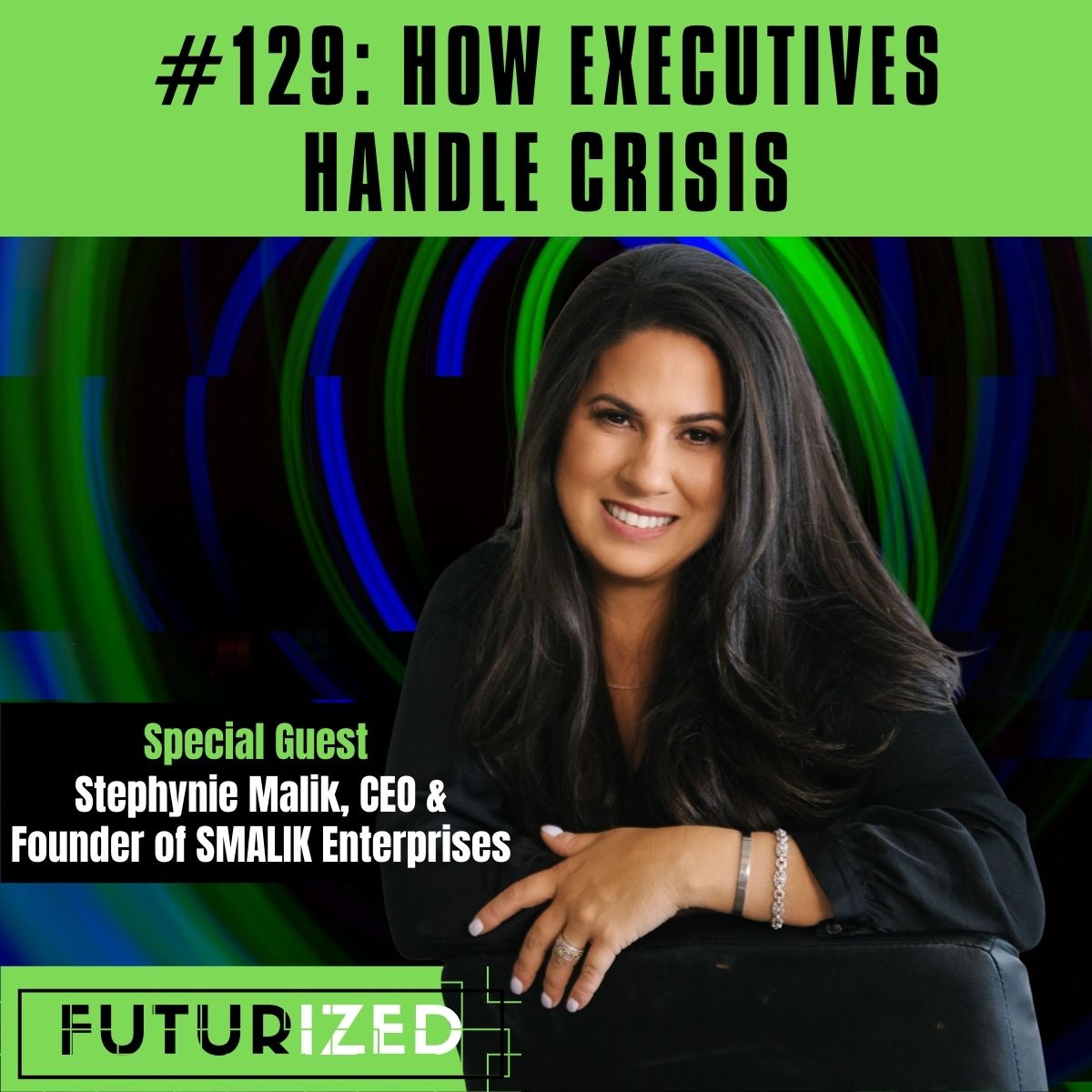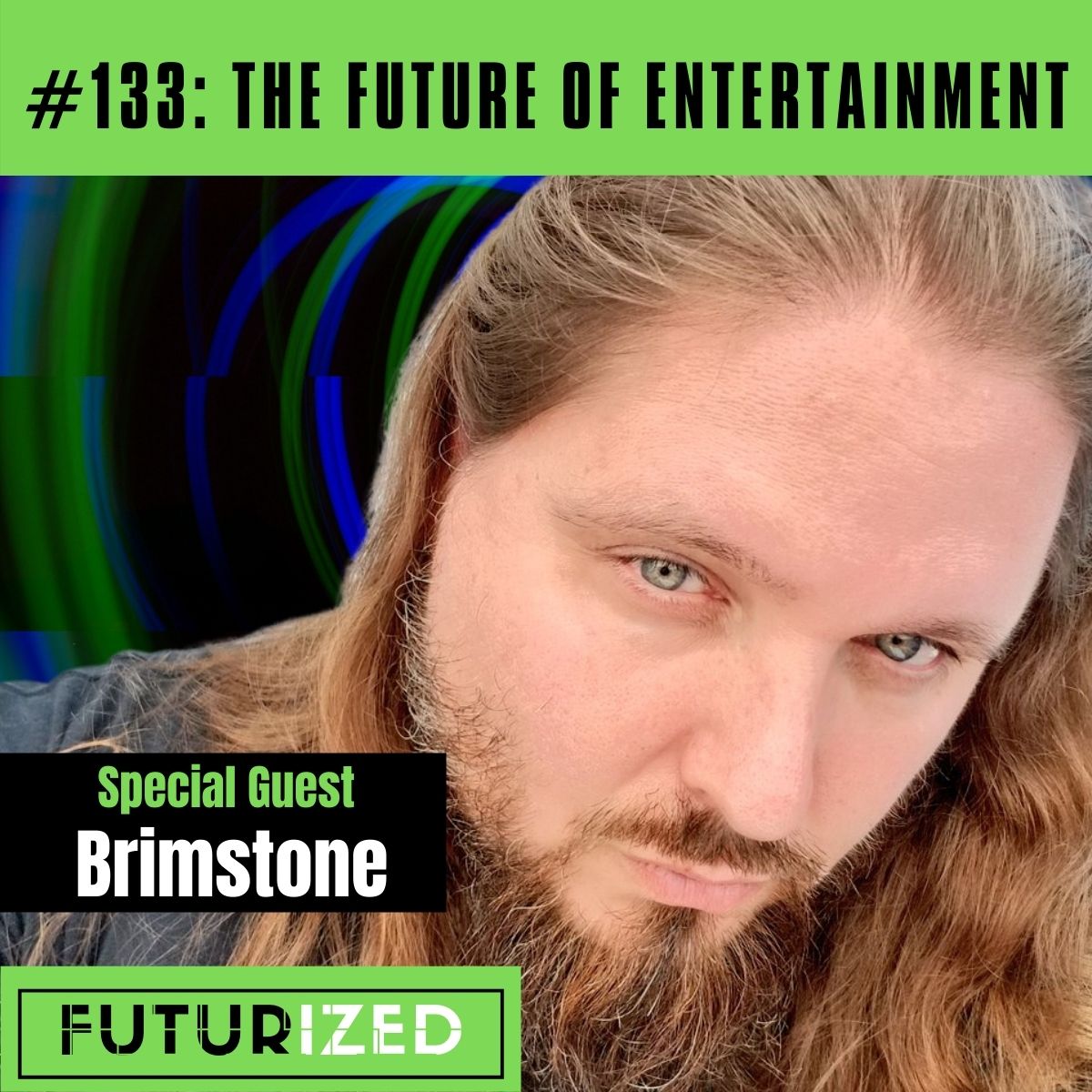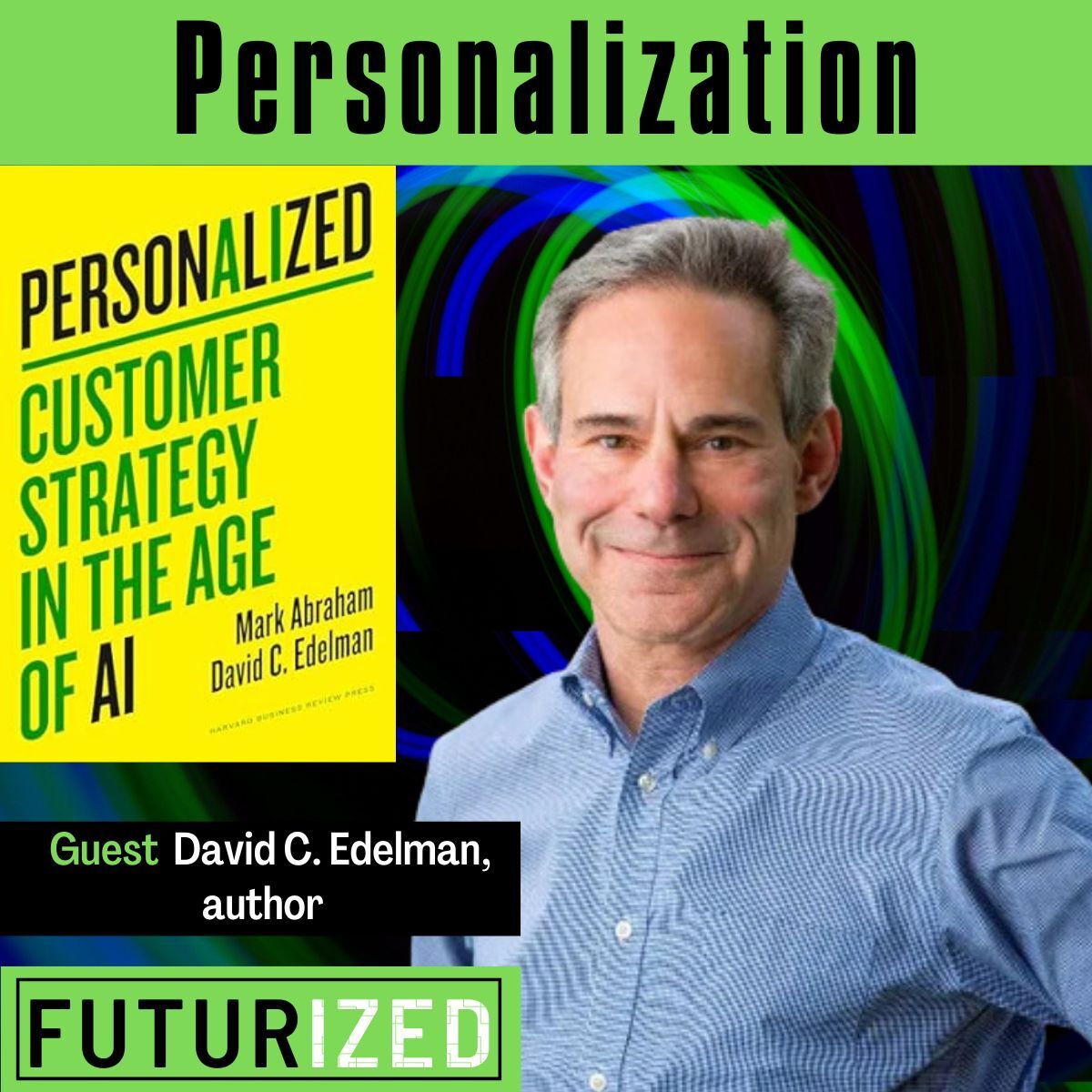Seed VC Trends: Founder Obsession
Tyler Norwood, Partner at Antler, the global early stage venture capital firm, interviewed by host Trond Arne Undheim, futurist, investor, and author.
In this conversation, we talk about how Tyler got into venture. We discuss betting on founders, teams a...
Tyler Norwood, Partner at Antler, the global early stage venture capital firm, interviewed by host Trond Arne Undheim, futurist, investor, and author.
In this conversation, we talk about how Tyler got into venture. We discuss betting on founders, teams and people. We cover the role of pivots, failures, and learning fast and slow. We discuss seed stage metrics, how to reduce risk, and how to ensure max upside. We spend some time on what it means to run a 'platform VC' and what best practice is (at Antler, Alpaca, others). What does the market look like? What's the seed investing outlook next decade? What are the differences between US and globally for VCs and startups?
Having listened to this episode, check out Antler as well as Tyler Norwood's online profile:
- Antler (@antlerglobal: https://www.antler.co/
- Tyler Norwood (@vacationronnie): https://www.linkedin.com/in/norwoodrt/
- Antler US (startups can submit): https://www.antler.co/usa
Trond's takeaway: Being a platform VC is a good way to go, because founders need all the help they can get, and money is not sufficient to provide from the early investor's side. Founders should become choosers, it's the only way to turn the tide for a more fair early seed stage experience for a diverse set of founders.
Thanks for listening. If you liked the show, subscribe at Futurized.org or in your preferred podcast player, and rate us with five stars.
If you like this topic, you may enjoy other episodes of Futurized, such as episode 70, The Future of Cleantech], episode 61, The emergent Arabian startup scene, or episode 47, How to Invest in Sci-Fi Tech?.
Futurized—preparing YOU to deal with disruption.
Seed VC Trends Founders and Thesis_mixdown
Trond Arne Undheim, Host: [00:00:00] Futurize ghosts beneath the trends to track the underlying forces of disruption in tech policy, business models, social dynamics, and the environment. I'm our host, thrilled on a futurist and author. In episode 95 of the podcast, the topic is seed VC trends, founder obsession.
[00:00:19] Tyler Norwood, Partner, Antler: [00:00:19] Our guest
[00:00:19] Trond Arne Undheim, Host: [00:00:19] is Tyler Norwood partner at the anther, the global early stage venture capital firm in this conversation.
[00:00:26] We talked about how Tyler got into injury and we discussed bedding and founders teams add people. We cover the role, pivots failures and learning fast and slow. We discussed seed stage metrics, how to reduce risk and how to ensure next upside. We spent some time on what it means to run a platform VC and what best practice is at anther PACA and others.
[00:00:52] What does the market look like? What's the seed investing outlook. The next decade. And what are the differences between the U S and globally for VCs and startups? Tyler. Hey
[00:01:02] Tyler Norwood, Partner, Antler: [00:01:02] Tron, how are you? I'm good. Just hanging out in Austin. The snow is melted we're all doing great. Yeah. I
[00:01:09] Trond Arne Undheim, Host: [00:01:09] mean, there's no snow in Boston either.
[00:01:11] For some reason it disappeared. It just got, we went to 40 degrees difference from in three days, so that's good. Yeah. Yeah. Tyler, you are an interesting guy as most people in my podcast, but you have this very strange oscillation between marketplaces and
[00:01:31]
[00:01:31] Asia and now Texas
[00:01:34] Tyler Norwood, Partner, Antler: [00:01:34] and a million other things and a million
[00:01:36] Trond Arne Undheim, Host: [00:01:36] other things.
[00:01:37] Tyler Norwood, Partner, Antler: [00:01:37] Yeah, oscillations, probably the right word. I I The biggest struggle I have in life is I think about this all the time. There's an endless thing list of things that I want to learn about. And I just don't have time. Like I get frustrated. I don't have time. There's 10 languages. I want to learn and piano and.
[00:01:54] Filmmaking in every industry that we could invest. It's a real burden,
[00:01:59] Trond Arne Undheim, Host: [00:01:59] a burden maybe, but it makes you more interesting. And by the way, I was just watching this clip, Gary V is everywhere. And he was just talking about how he was giving advice to a young woman who was asking him, everyone's telling me to focus and he said, no, don't focus.
[00:02:13] You and I are the same, we don't focus and we shouldn't focus. We're not made to focus. Our focus is that we're not being focused. And I thought that, he says a lot of stuff and not everything is equally profound in my view, but he is certainly he is profound about certain things. And this I think happens to be a really good insight.
[00:02:31] The whole obsession around focus is actually not always so productive.
[00:02:38] Tyler Norwood, Partner, Antler: [00:02:38] Yeah. I agree. It depends who you are. Yeah, it does. And I think it's about, one of the nuances it's never discussed with people like Gary V or then the opposite side of someone who's like really focused in deep is that the, I think a well-functioning society depends on both.
[00:02:54] It's not, there's not one prescriptive, like right or wrong. You need people who go really deep, right? You need PhDs. You need people who like move the needle a little bit in an area that has so much to learn before you can contribute to it. But then you also need people, especially in the modern day where like the systems that we live in and work in are so big.
[00:03:15] You need people who are interested in a lot of different things. Cause there's also. Tons of innovation and lots of new things. If we can create it by like connecting disparate things. So
[00:03:27] Trond Arne Undheim, Host: [00:03:27] that's that's a great statement actually, but just explain it to me then. Why are you now in venture? I, is it because of venture?
[00:03:37] Does all of that for you, because that's one of the reasons I'm in venture right now. It actually combines so many things. Like we get to look at so many sectors, we get to meet young founders that are all enthusiastic about different things. And we get to have a thesis about where the world is going.
[00:03:55] And and that is our focus. Is that why you're you are in venture or is it more haphazard than that?
[00:04:01]Tyler Norwood, Partner, Antler: [00:04:01] It's it says haphazard is everything in life is I guess, which is more than, I think we give credit for it, but similar reasons to use. So a couple of things that really stand out to me in venture one is that it's very suitable for somebody that likes to learn about a lot of different things.
[00:04:18]Like I said, like my injury, like if you look at my bookshelf, it doesn't make any sense. Like what, like book to book. It's just this kind of random Oh my gosh, I don't know about this. I want to deep dive. And I, my friends always make fun of me as like the trivia master and I have this.
[00:04:33] Are you too,
[00:04:33] Trond Arne Undheim, Host: [00:04:33] would you beat me at trivial pursuit? Many people would beat me, but would you in particular beat me?
[00:04:39] Tyler Norwood, Partner, Antler: [00:04:39] Maybe probably I would say, I probably have just a cultural edge on you. As of growing up in the United States is actually super
[00:04:47] Trond Arne Undheim, Host: [00:04:47] annoying with that game.
[00:04:49] Tyler Norwood, Partner, Antler: [00:04:49] Trivial pursuit is very cultural.
[00:04:51] It's fair. I've tried to play trivial pursuit with lots of different friends, and there's a big disparity of having grown up in the United States. Like it is very nineties cultural reference, but my friends, especially my very close friends for a long time they make fun of me and it's this annoying habit I have of like, why do you know that this is what people will be talking about?
[00:05:08] Somebody who's like, why do you know that? And the answer is almost always, like I read about it. And then I went down this like Wikipedia rabbit hole, like way too far. And then it just stuck with me. So I, whenever I find something I'm like, ah, I'd really like to know. More about that. And I'll go down this rabbit hole and then it's like, all right, that's as much as I need to know for a dinner conversation about this specific topic and this kind of like the next rabbit hole, the next rabbit hole.
[00:05:33]And so venture is very interesting to me. One, because like part of your job is to switch contexts a lot and to understand a lot of different things. I also very much enjoy the part of venture capital that I like a lot is it's very forward facing. So the point of venture is to try to build companies that are going to push things forward and to find founders who are very forward-thinking and very visionary.
[00:05:59] And I very much so to live in the future and thinking about where things are headed and what we can do to make things better, et cetera. And it's very aligned with that. And I think the third is like venture is a people business, ultimately. And I enjoy that very much and I'm good at that.
[00:06:14] So it's that, you see that thing on Instagram where it's find something that you like, and you're good at it, and you can make money doing. And to me, at least for right now. And I think for probably an extended period of my life, like it's a good convergence of those things. I'm good at it.
[00:06:27] I'm good at the people part.
[00:06:28] Trond Arne Undheim, Host: [00:06:28] Tell me more about the people part Tyler, because so many people in venture would at least for the longest time, maybe not now, and I'm not claiming it's, super unique to, to say that people is important in venture, but. It wasn't always. So because there was, of course this yeah we bet on a team, but very much is we bet on a thesis or we beat, we bet on a market or an opportunity.
[00:06:53] Tell me about how you see this. I guess obsession around founders, teams, people types of people, even personality traits. Like there, there are now venture firms that are going pretty deep. And I guess antler is one example right. Of, of companies that are, or venture firms that are going really emphasizing the people dimension.
[00:07:16] And I trying to almost crack it,
[00:07:20] Tyler Norwood, Partner, Antler: [00:07:20] if you can. Yeah there's so many here, to your question, it sounds we can focus on the people, part of the founders. There's a whole people, part of the, like going through the process of building a company. So as you scale, as you raise money, as you hire, as you build a team, as you sell, like all of those are functions of people skills.
[00:07:38]And then there's the founder piece Which I mean, I'm still developing a lot of thoughts around this and I'm in a data collection mode. I have some soft opinions about things, but they can very easily be changed by data that I see or things that I see. One of the thoughts I've had very recently is, like being an entrepreneur used to be a very niche career.
[00:08:01] Maybe even 10 years ago, let's say let's go 20 years ago. Like being an entrepreneur was like a very weird career move. It was seen as like incredibly, almost like untenably risky because you had all these other great options at companies. And the paradigm was that you work, you make your pension or your union member and you put in your time and then you retire and you're taken care of through life.
[00:08:23] And as that. As that's fallen apart in the U S that's no longer really a career option for a lot of people for a number of reasons. One of the reasons I think that's true in the U S is the economy is moving way too fast for that to happen. So like our parents lived in a world where if you graduated college and you worked at Xerox out of college, it's fairly likely to Xerox would be around for 40 or 50 years.
[00:08:50]It was an established, it took a long time for the economy to make big changes and for incumbents to fall and be replaced. And the internet the financial infrastructure that we've created, the speed at which innovation is happening right now, the speed at which consumers are changing preferences right now, et cetera, that assumption is no longer CRO assuming a company will be around in 50 years is like pretty bold assumption.
[00:09:12]Things just changed too fast. And so we all had to adapt to this new world where Hey, you're going to have a bunch, you're going to have a lot more jobs than your parents had. Probably you're probably even going to switch careers because what you start off as may not even be a relevant career by the end of your career.
[00:09:27]And that's a very new paradigm. So I think what's that what has happened is one of the symptoms of that is like being an entrepreneur is become very invoke. It's like a very cool. Career now it's viewed much differently than it was before. And so one of the big obsessions with people is now that you've flooded the market with all these people who want to be an entrepreneur, there are a lot more motivations for people wanting to be an entrepreneur.
[00:09:54] So I think the industry as a whole has had to try to respond and figure out what, like how do you sort out cause. Being an entrepreneur is super duper hard. It's very glamorized. One of the reasons why I think entrepreneurship is so popular right now is just it's very glamorized. Is this like amazing career option where you get to be your own boss and you like put in five years of really hard work and then you're a millionaire or a billionaire or whatever it is.
[00:10:19] Now, the reality is like that's like really poor availability bias of that's not that it's not the average outcome. It's not the median or the mean outcome of actually being an entrepreneur. And I think the financial world, the financial side of investing in companies has had to come up with a lot of ways to figure out, yes, we want to back founders who want to be entrepreneurs and be passionate, but we also have to create systems that.
[00:10:43] Try to route through the motivations of like, why do you really want to do this? Are you in it for the long run? Are you doing it for the right reasons? Because I think there are right. And there are wrong reasons. So being an entrepreneur. So
[00:10:54] Trond Arne Undheim, Host: [00:10:54] I want to hear more about that, but I think just to pick up on another thing you said, it's not just the right or wrong reasons, which in and of themselves is of course true, but.
[00:11:04] I mean is being an entrepreneur, actually a career. And I'm asking you more in the sense of, of course you can choose to see it as a career, but a lot of successful entrepreneurs, even by default, right? If you get acquired, you spend a little bit of time as an entrepreneur, a little bit of time in a larger company, and then maybe you do something else.
[00:11:24]Is it re, is the serial entrepreneur in particular healthy? To only want to start companies as your only mode?
[00:11:35]Tyler Norwood, Partner, Antler: [00:11:35] I think S I think so, but I'm biased. Like I've never in my entire career worked for a company that had more than 500 people in it, and I've almost always come in at the ground level, came in at the ground level at antler.
[00:11:49] What I enjoy is the. The beginning and the starting of a company. And so I do think it's a career and I think over time, a serial entrepreneur will collect skills. They'll collect network, they'll collect reputation that will help continue their success as an entrepreneur to varying levels. But I do think it's a career path.
[00:12:12] I think. My point though, is it's not a career path for everybody.
[00:12:18] Trond Arne Undheim, Host: [00:12:18] So the way to explore that, I wanted to explore it in a personal level. Why are you actually, why do you think you are currently
[00:12:25] Tyler Norwood, Partner, Antler: [00:12:25] I'm
[00:12:27] Trond Arne Undheim, Host: [00:12:27] an entrepreneur or like what happened the first time you were entrepreneurial? What guided you into that?
[00:12:33]And then I guess it also ties into like, why are you now an antler? Because. If I look again at your, your path, I guess everybody's path is atypical. Would you say that you did any amount of planning when you to be where
[00:12:47] Tyler Norwood, Partner, Antler: [00:12:47] you are now? No, I did. Like I did probably below average amount of planning through my I went to high school cause you had to I applied to one college, which is I applied to college, which was.
[00:13:00] Far enough away from my house that I didn't have to see my parents all the time was in North Carolina. So it was cheap. So I got in-state tuition. And then the final piece was like, Appalachian state is in the mountains. And so you can ski. And so for basically close to half the year after class, you can go ski.
[00:13:19] And then during the summer it's like perfect mountain weather. So you can. Golf and hang out. So like that. So it was a
[00:13:24] Trond Arne Undheim, Host: [00:13:24] lifestyle choice for you also.
[00:13:27] Tyler Norwood, Partner, Antler: [00:13:27] Oh yeah, for sure. Yeah. That was the amount of planning that went into like me deciding where to go to college. And the lack of planning was like, if I didn't get into app, like I had no backup choices, just all in on that.
[00:13:37]And I think I wrote that in my application to school, just so they would either take me seriously or feel bad if they rejected me.
[00:13:44] Trond Arne Undheim, Host: [00:13:44] Interesting.
[00:13:46] Tyler Norwood, Partner, Antler: [00:13:46] And then. Obviously like I'm I moved. So the day I graduated college, I moved overseas. That was, as I planned to move overseas, every other step after that was unplanned on purpose, like that was what was exciting to me was like, I was just going to go over there and figure it out like blank slate.
[00:14:04] Sure.
[00:14:05]Trond Arne Undheim, Host: [00:14:05] Overseas you went to ho Chi Minh, city, Vietnam.
[00:14:08] Tyler Norwood, Partner, Antler: [00:14:08] Yeah. Yeah that was part of it. Or
[00:14:11] Trond Arne Undheim, Host: [00:14:11] CS for Americans means that you go to London and Paris. You didn't follow the script.
[00:14:16] Tyler Norwood, Partner, Antler: [00:14:16] Yeah, it was. There was like maximize adventure and like part of adventure to me is there's not really a plan.
[00:14:22]There's a sense of what you want to accomplish over there, but there's not this like step-by-step itinerary plan. I don't, I'm not great. For example, it's Thursday today. I've got no idea what I'm doing this weekend. Like I'm just not, I'm not a planner. I'm really bad at planning. I like write down.
[00:14:38] Stuff all the time and then just lose a piece of paper and I'm like but do you think planning
[00:14:43] Trond Arne Undheim, Host: [00:14:43] is planning skills than not fundamental for an entrepreneur? So I'm just thinking about, even if you're just thinking about it founders, so we were talking about people and there's this trend of focusing more on the people aspect in VC, both for selecting and in terms of what we're helping them with.
[00:15:02] Yeah. But But planning, you're saying for you, hasn't been fundamental. How do you cope with that? If you're say, if you, if it's really true that you're not a planner, do you have systems or people around you that are much better at that? And then is that how you
[00:15:16] Tyler Norwood, Partner, Antler: [00:15:16] address it? Yeah. Yeah. So two things.
[00:15:20] One is I've had to learn how to plan when it's appropriate. So I think there is this sense of Especially with startups, especially with early stage startups. Like you see a founder and you meet them and they have this five-year plan. And the first thing I always think is this is bullshit.
[00:15:33]This is not how it's going to, there's no way to know how this is going to go. And if your confidence in this working is on this like PowerPoint plan that you've put together, like it's misplaced. But at the same time there realities of running a company reads, you have to plan, and, I run an investment fund.
[00:15:48] I manage people's money. Like I've had to learn how to plan around a business and be responsible and understand how to build that structure and how to I can't live my life like as Willy nilly, as I did in my twenties with the amount of responsibility that I have now. So I have had to learn that I've also learned to surround myself with people who are very good at that.
[00:16:05] And there are a few people on my team who are like the most meticulous detail oriented people on the planet. And we work so well together because they know, Hey, when it comes to the details, like you have full autonomy and you tell me what you need and how we're going to do this. When it comes to the high level, et cetera, I'll always be there, making sure we know which direction we're heading.
[00:16:29] And so figuring out that balance. And so as it's. As it's relevant to a founder, I think like learning what you're very strong at and then being able to surround yourself with people who compliment those softer spots. To me, in my experience, it has been incredible for my. Career progression and my maturity.
[00:16:48]Trond Arne Undheim, Host: [00:16:48] I wanted to move a little bit into kind of being a platform VC and to piggybacking on what we're talking about around people, because platform VC is like super trendy right now. And for a while, the word platform everybody loves anyway, right? We want to platform business models, but being a platform VC, what does it mean to you and w what are some examples of that, that you see out there, especially in the seed stage, what does it mean to help.
[00:17:13] To help entrepreneurs and have some sort of a platform when, where does it come in?
[00:17:17] Tyler Norwood, Partner, Antler: [00:17:17] Yeah. Yeah, it's definitely in Vogue right now. I think it's exciting to see like platform pick up steam because in my mind, what it means is that like the cash component of venture is becoming more and more of a commodity, which is good for founders and the whole rise of platform and VCs having to do more than just write checks.
[00:17:38] Is good for founders because essentially putting VCs on notice and saying Hey, there's a lot of people who can write checks. What else can you do for me? What's the value per dollar I'm going to get out of your investment? I actually saw is the first time I ever saw this, I saw a pitch deck the other day and it had a slide, which is what we want in our investor.
[00:17:56] And it was essentially like, it wasn't like, Hey, please give us money. We're so desperate for money. It was like, if you want to qualify to invest in our company, here's what we want you to have. And it was like, I love that. I love
[00:18:07] that.
[00:18:07] Trond Arne Undheim, Host: [00:18:07] I think that's the next thing. Of course,
[00:18:09]Tyler Norwood, Partner, Antler: [00:18:09] It is. And it's great for founders.
[00:18:11] And so I think the rise of platform VC it has a spectrum of, I think there are funds and investors who are very genuine about it. And actually want to build platforms. An antler is a platform VC, you've got fifth wall. I think it is an amazing example of a very specific platform, which is like all of our LPs are in the real estate business.
[00:18:31] We only focus on real estate companies. If we give you a dollar boom, you're going to meet every single person you'd ever want to know in the next two weeks. That's great. There's alpaca in New York, like Aubrey and her team are working. Really well on building this platform around like verticalizing specific thesis, right?
[00:18:50] So really diving deep understanding of space, building advisory and partnerships in the space, and then bring in teams in and saying, Hey, we've done a lot of the sort of weed whacking down the vertical to help you meet the people that you need to meet and understand the space well. And. Yeah, I think ultimately it's great for founders and it's still very the jury is still out on what's the best way.
[00:19:15] W what I think is interesting is there's a bunch of different funds trying to figure out different ways to do this. So it's just like exploration mode, which presents a lot of opportunity to figure out, like, how do. You support founders in a sustainable and scalable way, how do you really add value?
[00:19:31] How do you help them? What do founding teams actually need? And so that's where I think all these questions about what should we look for in founders? What really makes a successful team? Like all these questions are starting to be discussed much more deeply because people are trying to figure out like if we build this platform, like what should we help with?
[00:19:47] What should we look for? What should we provide? It's very interesting. And I think like VCs are being forced to become much more operators than just check writers.
[00:19:56] Trond Arne Undheim, Host: [00:19:56] Yeah. It challenges us to because. It's one thing to say, Oh, we have a big Rolodex or something, but that's, it seems to me that you can't really call yourself a platform VC, just because you have a Rolodex or even if you have a brand right.
[00:20:08] In good old days, and we're not going to mention names of brands that were operating this way, but there certainly are firms that are trading purely on their brand. But even those firms have had to learn to actually do real stuff. Yeah. Because it's not enough.
[00:20:22] Tyler Norwood, Partner, Antler: [00:20:22] No, exactly. And.
[00:20:25] Yeah, I think that you'll continue to see innovation here too. I don't think there's one size fits all either, right? There's this misconception that like, like startup founders and startups are just this commodity and everybody's out looking for them out of a pool of N. But the reality is there's lots of different types of startups and there's lots of different founders and founders who are looking for different things.
[00:20:46] And this. I think there's a big misconception. Like every founder out there wants to raise venture capital dollars and go and create a $50 billion IPO. When I would venture to guess it probably a minority of actual teams out there want have that as part of their core vision and what they care much more about is like the mission and what they're trying to accomplish.
[00:21:08]And yeah. I mean there's so the platform is one and this is where people, antler is trying to figure this out and working on this, but you have components like community, right? Which is like, how can I build communities of people and how do I organize them? Do I organize them geographically?
[00:21:24] Do I organize them? By sector by technology. Like how do I do that? There is the support functions. So these like in-house support functions. So a lot of a 16 is quite famous for they have an in-house designer and an in-house marketing expert. And these people who can jump in and serve as interim executives.
[00:21:46] And then the last component is just like vertical value. Add just like who. Do you know, that's relevant to my company and who can you introduce me to and how warm are those introductions? And then there's a different part of innovation, which is happening in VC, which is not necessarily platform, but it's like innovation in the financial structuring itself.
[00:22:05]It was like, okay. The two and 20. Like the safe note 10 years ago was a big innovation and it was great. It was like, Hey, investing in early stage companies and going through the whole evaluation process in a shareholder's agreement, all this stuff is way too much work for a company that's generating $0 of revenue.
[00:22:22] So the safe note was an amazing innovation. What I'm seeing now is a lot of innovation, a lot of thinking around. What are new angles and what are new ways for dollars to take exposure to startups that change the incentives or change the returns or change the overall model. And so you see things like hybrid investments where, I'm going to give you some equity.
[00:22:44] I'm going to give you some debt. You see a RBI is starting to be experimented with, which is I, and the whole concept behind RBI is like, One of the reasons why VC disproportionately tries to hit home, run grand slams $50 billion IPOs is because that's the only way they get their money back.
[00:23:01] So RBI is Hey, this would create an incentive for VCs to actually push their teams to be profitable earlier and to focus on profitability and not necessarily just right scale. And all of that, it was good. I think what it will do is start to fill the cracks where VC is not necessarily the best as supporting companies.
[00:23:18] Which like VCs really good at supporting software companies that can scale incidentally and the total market is everybody on the planet. I'll admit VC is not super good at supporting ventures, which are local or community focused or, not hyperscale.
[00:23:33] Trond Arne Undheim, Host: [00:23:33] Yeah. You and I have met some of those companies and they can do great work, but you are training me on this, that it's, ma we may not be the right vehicle for some of those, even though they can make tremendous impact and they can be great companies and they can do great things.
[00:23:48] They're just not Gotta be interested in this venture track, at least this venture track, as it in a standard way has been understood. So w one of the things that been doing with anther right, is to try to experiment around even just the business model and the support model, and not just in sourcing the right kinds of ideas, but but indeed, with what we're talking about, how do you.
[00:24:11]How do you find an, a more unique way to, to work with companies? What is your latest concoction there? Are you prepared
[00:24:19] Tyler Norwood, Partner, Antler: [00:24:19] to share some of that with us? Yeah, for sure. So the latest evolution of like how we're trying to better and better support founders. So traditionally we bring in founders from all different sectors to different technologies, et cetera.
[00:24:31]They have, we give them a small investment upfront. We spend six to 12 weeks working with them and then make a decision based on the traction of the company in that period where we're like really in the trenches with them working on trying to find product market fit. And then we make a larger investment and we've done it agnostic across all sectors and technologies.
[00:24:52]And so the latest innovation is thinking about, would it be better for the teams and better for us if we did it. Like sector by sector. So one of the challenges we have is, if you bring in a food delivery company and then a AI company for copywriting and then a legal tech company and a prop tech company.
[00:25:14] Yeah. They're all building startups, but the relevance to each other doesn't really extend that much further. It does coincidentally, but not from a. Vertical perspective. And so our thinking is can we do it more vertically focused in sort of increments of four to six months? So instead of bringing in a bunch of different teams and hoping that they can help each other, and then us also having a context switch between like, how do we help this real estate company?
[00:25:43] How do we help the CPG company? How do we help this company, et cetera, to say, Hey, for the next six months, we're going to focus on companies in three, these three verticals and. We're experimenting it because the thesis is one is that the companies will find more value out of the community because there's a deeper connection than just we're building a startup.
[00:26:02] There's a connection in Hey, we're building a startup trying to improve financial inclusion, or one of the first thesis is we're working on right now is the creator economy. So it's Hey, we're all working in the creator economy. There's a lot, our Venn diagrams overlap a lot more and that community makes a lot more sense from a relevance perspective.
[00:26:20] And then for us, we can provide more value to our teams. One, because we're not context switching all the time so we can get deep and smart in that area. But two is we can, like I said before, weed whack our way forward through some of the intros and advisers and potential customers and competitive awareness that the teams need to have.
[00:26:40] For that vertical for that period of time for those teams. Tyler,
[00:26:44] Trond Arne Undheim, Host: [00:26:44] I just I love how our conversation is going three 60 because we started talking about whether focus was good or bad. And you said but it seems like they're so there, but there is this Wikipedia focus that's that's happening in this approach too, which I guess must fit your personality.
[00:26:59] I think mine so at some point, your focus is not that you're not focusing and it's not that you're not diving deep. It's just that you can't dive deep on everything all the time, because first off that's. Not really diving deep. It confuses you and people. And also, I like what you're saying about community.
[00:27:16] It's really hard to build community, even in venture or in any community. If you are at any moment focused on anything. I It would be like you and I inviting to a party and you're like we're going to pretty much talk about everything. Only Seinfeld got away with that right show about nothing and everything.
[00:27:31]Essentially everything has a topic. If you don't dive into something, Yeah.
[00:27:36]Tyler Norwood, Partner, Antler: [00:27:36] What are you talking about? Yeah, exactly. And it's about, like I said, in the very beginning, I think it's about finding that balance. And so the way I think about it as there's two extremes to the focus or agnostic side of venture, one is you can go super, super deep in my OPIC and say, we're a fund we're only focused on pharmaceutical research.
[00:27:54] That's all we touch. So you're incredibly deep in that space. And that thesis is implicitly built on like we're experts in this space. We know all of the gatekeepers and all the people that you'll need to talk to. There's no reason why companies wouldn't come and want to work with us to open those doors.
[00:28:09]The downside of that thesis is if there are fluctuations in the pharmaceutical market space, you're highly exposed. You don't have any hedge against that. You're all in. On that space. I'm sure a better example would be, let's say cryptocurrency, right? If you built a, so it's funny because this example made a lot more sense.
[00:28:30] Six months ago. Now we're going through this second crypto Renaissance, but say in 2017, when Bitcoin hit that first. Logarithmic scale, you launched a cryptocurrency focused fund in 2017, it was super hot. You raised a bunch of money. And then we went into this like crypto winter for three years.
[00:28:49]So like your fund is highly exposed to the downturn in crypto. And that's tough. It's tough to get through that period as a fund. On the other side was just completely agnostic. Like you could say the derogatory term is like spray and pray. You just like anything that walks across your door with a heartbeat, you throw money at no concentration risk.
[00:29:07]Someone say it's an index strategy, right? It's an ETF strategy of we're just betting on the total market going up and we're going to take exposure across so many different things and just rely on technology as a whole is going to win. We're not trying to figure out where it's going to win.
[00:29:20]The downside is that you can't get deep and smart about any one thing, right? You're always going to be very surface, shallot level. And for an early stage company, that's tough because they need someone who understands what they're doing. They need someone who can provide practical advice and really get into the trenches with them.
[00:29:38] And so the thinking on this evolution is this six month focuses helps us to find a good balance between those two things like, and there's never going to be a hyper vertical focused fund. We're also never going to be a spray and pray of just Hey, we'll invest in anything, et cetera. So finding the right balance where over the life of the fund, we're building diversity, but we're doing it.
[00:29:58]Like you said, we're doing it like rabbit hole by rat forever.
[00:30:02] Trond Arne Undheim, Host: [00:30:02] I love that. Tyler look, you, and I will have many more conversations cause this I enjoy talking to you and I think there are just so many topics that we can explore like a rabbit hole by rabbit hole as well.
[00:30:15] So I wanted to just close it off with having you
[00:30:18] Tyler Norwood, Partner, Antler: [00:30:18] maybe
[00:30:19] Trond Arne Undheim, Host: [00:30:19] give some super quick advice. So if if you are. Advising founders out there right now, or want to be founders, what's their the first question they should ask themselves before they run off and either create a business deck or co come to antler.
[00:30:33] Is it should I do this in the first place? Or should I, do you want to argue investigating, like what's one thing that you would suggest is fundamental from
[00:30:42] Tyler Norwood, Partner, Antler: [00:30:42] your side. Yeah. So my personal bias is always at that beginning stage is the question why and going back to what we talked about in the beginning of figuring out why people want to be entrepreneurs is like really spending the time.
[00:30:55] It's a very tough question to answer because. And this is applicable. Why is like the existential question of life, right? Cause it's where all of your biases and all of the different parts of your brain are trying to trick you into providing different answers. And so spending the time and the effort to really go through the, like, why do I want to do this?
[00:31:13] Why do I want to be an entrepreneur? The problem these days is because of how romanticized it's become. And because of the availability bias of thinking like, Oh, it's a guaranteed path to be a billionaire. A lot of people's why, and it may not be immediately apparent to them, but if you dig down, it's why I want to be entrepreneurs?
[00:31:31] Cause like I want to be on Forbes and I want to be a billionaire. And I want to feel like Elon Musk, when that first, Falcon one took off and landed that's why I want to do it. And I personally, and there's people who disagree with I personally think that's a horrible reason to become an entrepreneur.
[00:31:44] And I don't think it's sustainable. I think you're setting yourself up for failure. If that's your why? Because it's going to be 1% that, and 99%, the opposite of that, which is like doubt and potential financial ruin. You're betting a lot on being an entrepreneur financially and socially, et cetera.
[00:32:01]Versus the best why? And I'll continue to update this model in my head is I continue to meet founders or whatever, but the best Y and the best founders I've ever worked with, it's always some version of, I won't. I like I can't sleep at night. If this, if someone's not working on solving this problem it's an obsession with the problem and.
[00:32:23]I'm guilty of using Elon Musk as an example way too frequently, but I think he's a great representation of he is almost maniacally obsessed with this idea of like humans, colonizing, Mars. And it does it. The thing is it doesn't need to make sense to other people, as long as you truly are obsessed with I need this to happen.
[00:32:45] Like I can't sleep at night. And if I were to work a job at Oracle, I would pull my hair out every day, thinking like I'm not working on solving this problem.
[00:32:53] Trond Arne Undheim, Host: [00:32:53] Thanks. That's that's fascinating. We'll pick up on that thread later, but I think that obsession is is important. Thanks so much for coming on the show today.
[00:33:03] Tyler Norwood, Partner, Antler: [00:33:03] Awesome. Thanks for having me Tron. You have
[00:33:06] Trond Arne Undheim, Host: [00:33:06] just listened to episode 95 of the futurize podcast with host throne futurist, and the topic was CDC trends, founder obsession. In this conversation, we talked about how Tyler got into venture and we discussed bedding and founders teams and people, and covered the role of pivots failures and learning fast.
[00:33:26] And we also discuss the seed stage metrics risk. And what does the market look like?
[00:33:35] My takeaway is that being a platform, VC is a good way to go because founders need all the help they can get. Money is not sufficient to provide. From the early investors, founders should become choosers. It's the only way to do it. Turn the tide for a more fair early seed stage experience, right?
[00:33:54] Diverse co-founders. Thanks for listening. If you like the show subscribe@futurize.org or in your preferred podcast player and rate us with five stars. If you like this topic, you may enjoy other episodes of futurize such as episode 70 on the future of Cleantech episode 61 on the emergent Arabian start-up scene or episode 47 on how to invest in scifi tech.
[00:34:20] Futurize preparing you to deal with disruption.

Tyler Norwood
Partner, Antler
Tyler is a business development specialist and entrepreneur with a strong focus on the growth and geographic expansion of early stage companies. With close to a decade of experience under his belt, Tyler prominently lead the rollout of a comprehensive marketplace business model across over 10 countries in Southeast Asia for both Zalora and Global Fashion Group (GFG). The former Head of Business Development at GFG also spearheaded one of the largest private e-commerce acquisitions to-date involving India’s e-commerce fashion site, Jabong. Tyler holds a Bachelor's degree in Business Administration from the Appalachian State University.



































